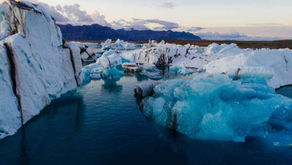top of page
The Ultimate Guide to Iceland
If you’ve ever considered travelling around Iceland, chances are you’ve heard of the Ring Road. Iceland’s Ring road, or Route 1, makes for the ultimate road trip.
This 1332km long road runs along the perimeter of the island, connecting most of the inhabited areas, and boasting some of the most beautiful natural landscapes on the planet. Take a look at our ultimate guide to Iceland’s ring road.
bottom of page
























